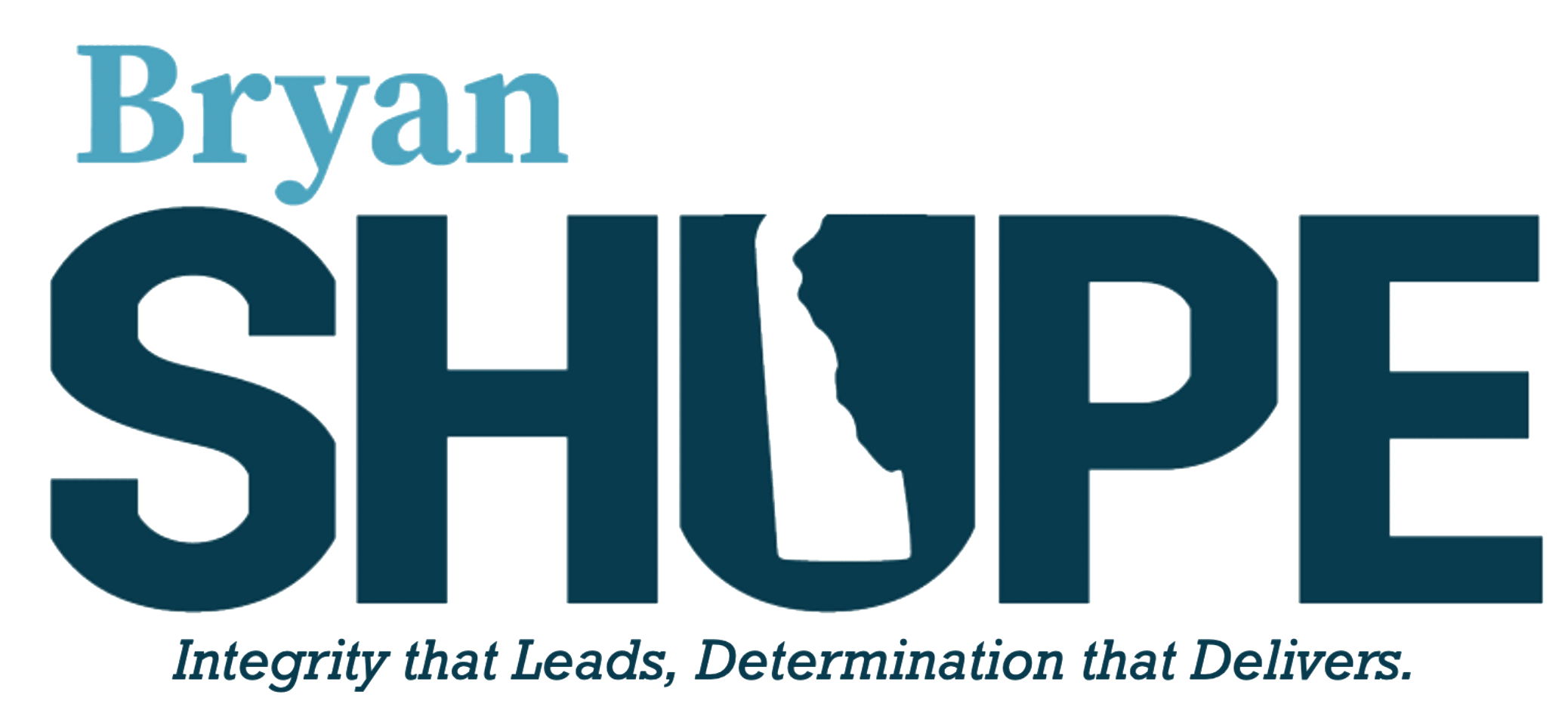
State Rep. Bryan Shupe
As many Delaware small businesses are still relying on federal and state subsidies to keep the doors open and local families employed, many jobs have been lost to current business regulations that have given unfair advantages to large corporations during the pandemic. This has driven the public sector to double down on its efforts to seek government solutions to our economic woes. But when creating large scale economic policies, like raising the minimum wage in Delaware to $15 an hour, lawmakers must take the time to analyze the positive and negative impacts to create long-term, sustainable progress forward for Delaware families.
This is not an argument for or against raising the minimum wage, it is simply a recognition that there will be a significant investment by all taxpayers to make this commitment.
While both our United States Senators Tom Carper and Chris Coons voted against a national minimum wage of $15 an hour, local proponents of the movement have pushed the cause into overdrive. This accelerated pace has left little information on the table for the public, press, and other lawmakers to consider when deliberating on an initiative that is asking taxpayers to make an investment in the State of Delaware as an organization and also agreeing to allow the State to play a pivotal role in the future of Delaware’s free market. Regardless of where your opinion falls on minimum wage legislation, we can all agree that elected officials should have full access to the impacts on taxpayers and small business across the First State before making this decision. When this legislation is discussed in the General Assembly, it is not a time to fight for political points, but to create good policy for Delaware’s future.
The first critical piece of information that needs to be presented in whole to the public, press, and General Assembly is the total cost of the legislation to taxpayers. The proponents of this bill cited in past press releases that the cost would only be $40 million. This number comes from the Controller Generals Office at the State of Delaware that by law gives the price tag on only what the bill is specifically asking for. The Office has done its job, as the bill states that it intends to bring State employees up to minimum wage at $15 per hour. What this number does not include is the cost to taxpayers when, as a responsible employer, the State of Delaware takes other employees that currently make $15 or above and give them an equitable raise. The quoted $40 million also does not include the increased costs on state contracts. As the labor costs go up for jobs being completed by outside contractors for the State, so will the overall costs for those contracts.
Another crucial element to discuss is how the State of Delaware will achieve long-term solvency under this legislation. Will it be through raising taxes, hiring freezes, cutting services or other measures. All of these will impact current State workers and taxpayers ongoing, every year as this increase continues perpetually. All of these points of consideration are necessary for the State of Delaware to establish before this bill is discussed since this legislation is not only asking for taxpayer investment for State employees but asking that the State regulates the free market in Delaware. Our small businesses, which sustain jobs for over 50% of families in Delaware, will be required to raise payroll costs up to 40% before hiring any more employees. Unlike larger corporations like Walmart and Amazon, which were given as examples of companies that have already raised their minimum wage to $15 per hour, our Delaware small businesses do not have the international reach to be able to raise prices or cut services to account for payroll increases of this size without profits being realized to cover their costs. While still struggling to survive through this current pandemic, keeping the doors open is the main goal for many local businesses as profits have dwindled.
This is why it is important that before voting on this bill, lawmakers should request that the State of Delaware analyze the impact of this legislation on the local Delaware economy. The Congressional Budget Office recently conducted a similar report for the United States Congress, showing both the positives of wage growth and the negatives of job losses across the country if a $15 minimum wage was implemented. Lawmakers need local research to make a huge decision that will affect every family in Delaware. A good policy is made through empirical evidence where unbiased information can be used to find the best path forward. If lawmakers are choosing to change free-market economics, local research is needed to create a policy that strengthens the ability of Delaware families to create independence in their lives.
As with all public policy, we must research and do the heavy lifting before making decisions. The residents of Delaware elected us to put in the time to educate ourselves, engage with different sides of the issue, and create a policy that will result in long-term, sustainable growth. To do this, the public, press, and lawmakers need full disclosure of the impacts of this legislation on taxpayers and an analysis of our local, free market. With this information, we can have an enlightened, useful discussion that will lead to a community-driven policy that can truly help Delaware families.


